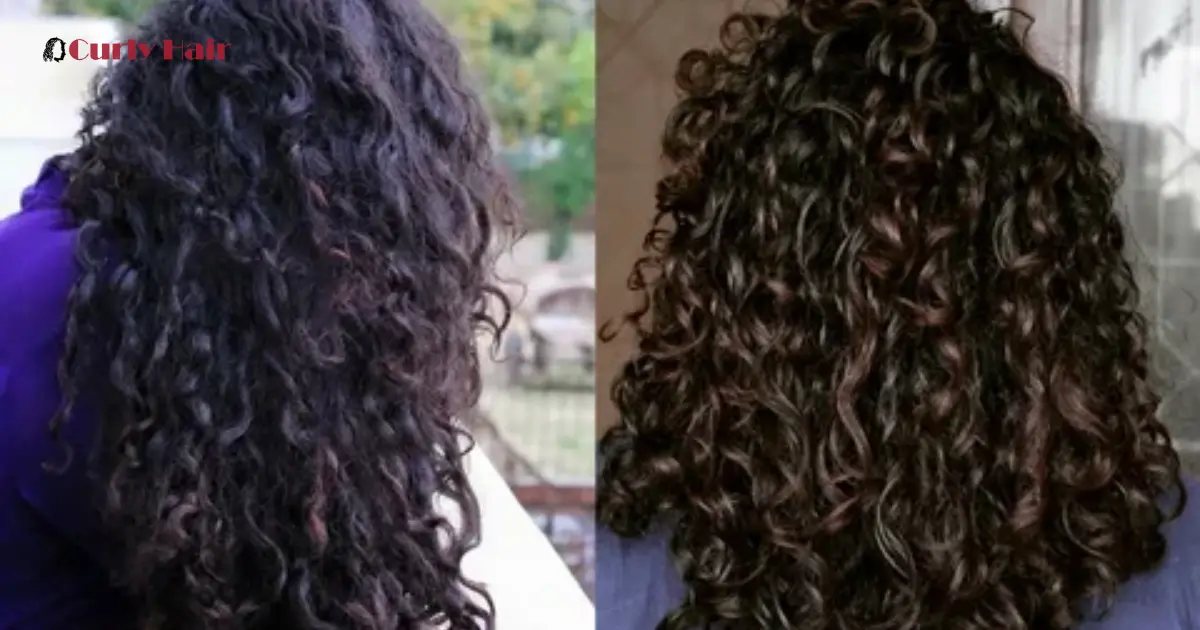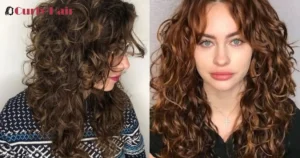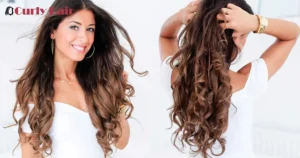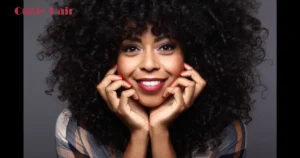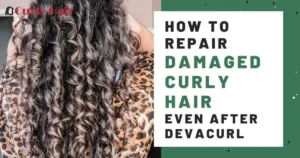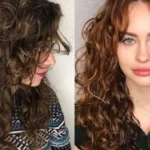This is where the use of a hair mask for dry curly hair becomes essential. By incorporating regular conditioning treatments and deep conditioning methods into your routine, you can restore moisture and improve the overall health of your curls.
Curly hair is a beautiful and unique hair type, but it often comes with challenges, especially when it comes to maintaining moisture. Due to its textured nature, curly hair tends to be naturally dry, which can lead to issues like frizz, breakage, and lack of shine.
Key Takeaways
- Hair masks for dry curly hair focus on deep hydration. Curly hair naturally tends to be drier due to its structure, so a hair mask should provide intense moisture.
- Rich in fatty acids and vitamins, it deeply nourishes and softens hair.
- Adds shine, reduces frizz, and locks in moisture.
- Known for hydration and smoothness, especially beneficial for dry, curly hair.
- Provides moisture and soothing properties.
- A humectant that helps retain moisture.
Understanding Curly Hair and Its Needs
Curly hair has unique needs due to its structure, which makes it more prone to dryness and frizz. To reduce curly hair frizz, focus on moisturizing your hair with products containing ingredients like shea butter or glycerin, as they lock in moisture. Using a microfiber towel or air-drying can also minimize frizz by preventing friction that roughens the hair cuticle.
Additionally, avoid heat styling and harsh sulfates, as these can strip natural oils and exacerbate frizz. Regular deep conditioning treatments and applying a leave-in conditioner or curl cream while your hair is damp can significantly reduce frizz and improve curl definition.
Why Deep Conditioning Is Essential for Dry Curly Hair
One of the most effective ways to care for dry curly hair is through deep conditioning. Unlike regular conditioners, which work on the surface, deep conditioning treatments penetrate the hair shaft, delivering intense moisture and nutrients. This is particularly important for curly hair, which naturally loses moisture more quickly than straight hair types.
By integrating deep conditioning into your routine, you’ll help restore the elasticity of your curls, reduce frizz, and prevent breakage. For severely dry curls, it’s recommended to use a deep conditioning treatment at least once a week, while those with less dryness can opt for every two weeks to maintain healthy hair.
Choosing the Right Hair Masks for Dry Curly Hair
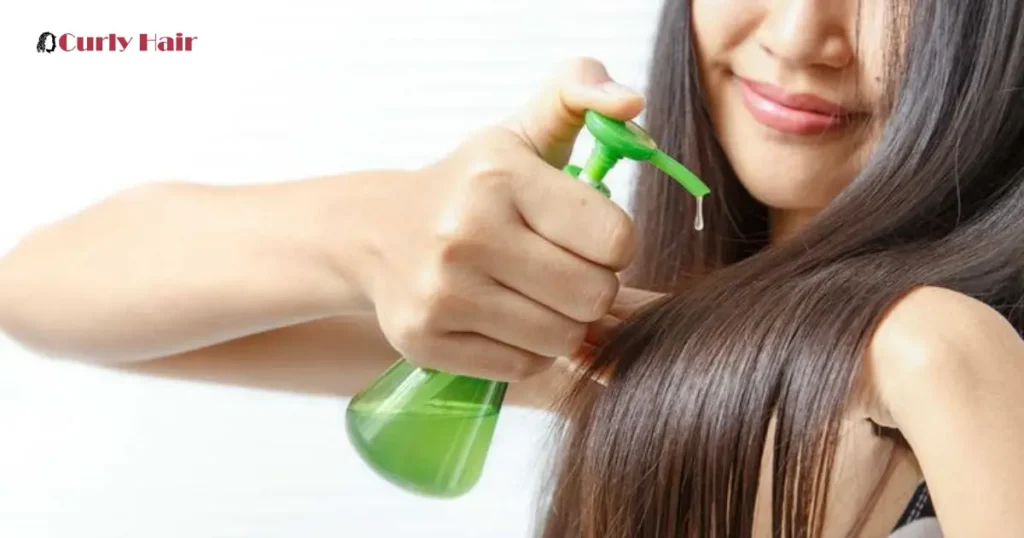
When selecting a hair mask for your curls, it’s important to look for products that focus on hydration and repair. Hair masks rich in ingredients like shea butter, coconut oil, and argan oil are ideal for locking in moisture and protecting the hair. Products like the shea moisture raw shea butter deep treatment mask are specifically formulated for color treated and dry curls, offering much-needed moisture and repair.
For those with particularly dry or damaged hair, hair mask do for curly hair such as the Ouidad Curl Recovery Melt-Down Mask can provide deep hydration and nourishment. Additionally, DIY hair masks using natural ingredients like avocado and honey can be effective, affordable solutions for treating dry, curly hair.
The Role of Conditioning Treatments in Curly Hair Care
Beyond deep conditioning, regular conditioning treatments are essential for maintaining moisture in curly hair. These treatments work by sealing moisture into the hair shaft, making them an important part of your hair care routine. Ingredients like coconut oil, shea butter, and aloe vera are particularly beneficial for curly hair.
As they help reduce frizz, enhance shine, and keep curls hydrated for longer periods.Using conditioning treatments regularly will ensure that your curls stay bouncy and defined, rather than dry and lifeless.
How to Choose the Best Hair Mask for Your Hair Type
Choosing the right hair mask goes hand in hand with understanding your hair type. If you have fine curls, you’ll want to opt for a lighter mask that won’t weigh your hair down, while thicker curls can benefit from heavier, cream-based masks that provide intense hydration.
For those with color treated curls, it’s important to use masks that both hydrate and protect your color from fading. Look for sulfate-free products with ingredients like keratin and argan oil, which will nourish your hair without stripping away its color.
Best Practices for Applying Hair Masks on Curly Hair
To get the most out of your hair mask, proper application is key. Start by applying the mask on clean, damp hair, allowing it to absorb the nutrients more effectively. For deeper penetration, consider using heat either from a shower cap and blow dryer or a heat cap. This allows the mask to work its way deeper into the hair shaft, providing more intense moisture.
Most masks should be left on for about 20 to 30 minutes, though you can leave them on overnight for extra hydration. When rinsing out the mask, use cool water to help seal the cuticle, which locks in moisture and gives your curls a smooth, shiny finish.
Special Considerations for Color-Treated Curly Hair
If you have color treated curls, it’s especially important to use products designed to maintain both moisture and color vibrancy. Chemicals used in hair coloring can strip away natural oils, leaving your curls dry and prone to damage. Using a hair mask that’s specifically designed for color treated hair will help maintain your color while nourishing your curls.
Look for masks with ingredients like keratin, argan oil, and UV filters to protect your hair from the sun’s damaging effects while keeping your color intact.
Affordable DIY Hair Masks for Curly Hair
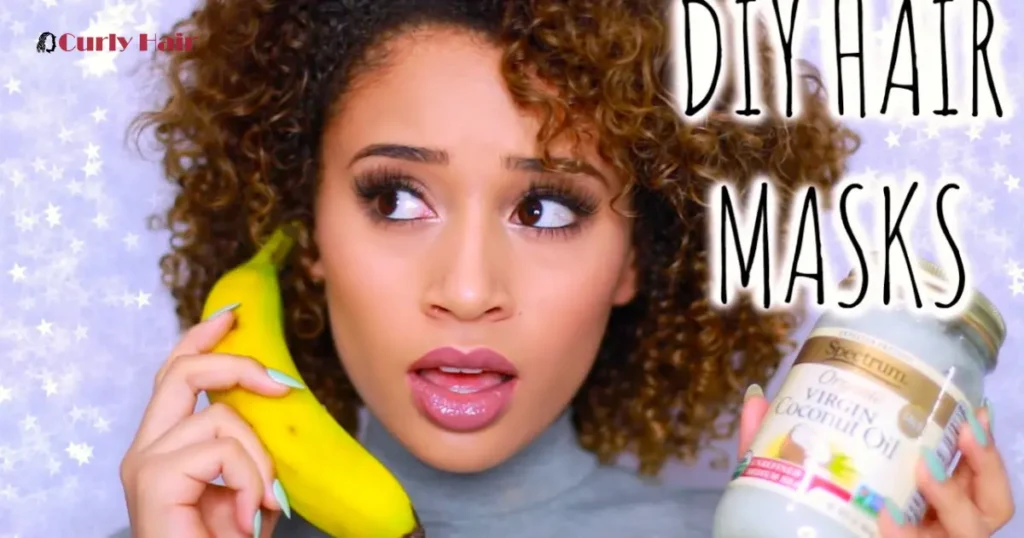
If you prefer a more natural and cost-effective approach, DIY hair masks to repair are a great option. For example, an avocado and honey mask can provide deep nourishment, thanks to the healthy fats in avocado and honey’s ability to draw moisture into your hair.
Alternatively, a coconut oil and yogurt mask can offer protein and hydration, perfect for curls that need a little extra care. These DIY options are easy to make and provide a great alternative to store-bought conditioning treatments.
Frequently Asked Question
How to repair dry curly hair?
To repair dry curly hair, it’s essential to incorporate a routine that restores moisture and protects your hair protective styles consider using protective styles to minimize breakage and exposure to environmental stressors.
How to dry frizzy curly hair?
To dry frizzy curly hair, use a microfiber towel or a cotton T-shirt to gently squeeze out excess water, avoiding rough towel-drying.
Which homemade hair mask is best for dry hair?
Mash the banana, then mix it with the olive oil and honey. Apply the mixture to your hair, focusing on the driest areas, and leave it on for 20 minutes before rinsing with cool water.
Should I shampoo after a hair mask?
For heavy oil-based masks like those containing coconut oil or avocado), it’s a good idea to shampoo afterwards to remove any excess residue. For lighter, hydrating masks, like those designed to boost moisture without oils.
Conclusion
Incorporating a hair mask for dry curly hair into your regular curly hair care routine is essential for maintaining healthy, hydrated curls. Whether you choose store-bought deep conditioning treatments or opt for DIY solutions, the key to healthy curls is consistency.
By understanding your specific hair type and selecting products that cater to your needs especially if you have color-treated hair you’ll transform your curls from dry and frizzy to hydrated and defined.
